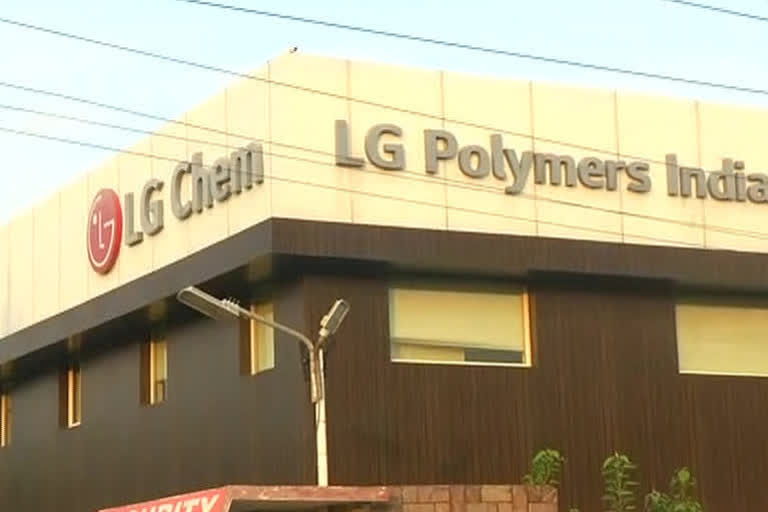New Delhi: The leak of toxic gas Styrene from the South Korean company LG Chem’s plant near Visakhapatnam on early Thursday morning points at the lapses committed by both the company and enforcement authorities, causing an avoidable disaster that eventually claimed at least 12 lives and affected more than 1,000 people.
Under the law, the Ministry of Environment and Forests is required to keep track of 1860 industrial units, also known as Major Accident Hazard (MAH) units, located in more than 300 districts across the country. LG Polymer's plant near Visakhapatnam also falls in the category of MAH units.
The environment ministry has Central Crisis Group (CCG) at the national level and State Crisis Groups (SCGs) and District Crisis Groups (DCGs) at the state and district levels to prevent and contain any chemical-industrial crisis.
Whether LG Chem did not follow the SOP
“In this case, glaring gaps can be seen at the unit level. It seems there was no Leak Detection and Radar (LDAR) system in place to detect the leaking equipment, else it could have been addressed timely,” said Amit Tuteja, Head of Disaster Risk Reduction of Knowledge Links, a Delhi based group that works with governments and other stakeholders for disaster reduction efforts.
He said that the LG Polymer’s unit should have exclusive onsite and offsite plans to deal with any such contingency.
An environmental activist and advocate Manmadha Rao also blames the company management and Andhra Pradesh State Pollution Control Board, other local authorities for the disaster.
“In my view, there is negligence on the part of management,” he said.
“It happened because there is a lacuna in Andhra Pradesh Pollution Control Board also. They should also be punished along with the management,” Manmadha Rao told ETV Bharat.
Read:Over 60% of leaked styrene vapour polymerized: Vizag DC
He said no government official inspected the company premise before permitting the company to restart the operation.
Early reports suggest that the leak occurred at around 2.30 am in the morning when some staff was allegedly trying to re-start the plant, which appears to be a violation of standard operating procedures (SOPs) for such industries.
“MAH units should also follow SOPs with regard to pre-startup hazards and risks based on assessments. Ideally, such plants are often re-started during the day time and not in the middle of the night,” Amit Tuteja told ETV Bharat.
Failure of government authorities
Experts and environment activists point out that in addition to the failure at the company level, relevant district and state authorities also failed in ensuring the compliance of the companies with the legal provisions.
Manmadha Rao told ETV Bharat that no inspector from the factories or industries departments visited the plant to inspect its condition before permitting the resumption of operation.
Chemical-Industrial Disaster reduction expert Amit Tuteja also blames the local administration for the lapse.
“At the local level the district administration is responsible,” Amit Tuteja told ETV Bharat.
